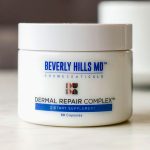In an era where digital transformation and rapid advancements define the professional landscape, the pressure to perform and succeed can often overshadow personal well-being. Consequently, health and wellness have become paramount for personal satisfaction and maintaining productivity and long-term success. Health and wellness seminars emerge as an indispensable tool in this context, offering numerous benefits for industry professionals. This article delves into the importance of these seminars, explores various types, and highlights their long-lasting impact on individuals and organizations.
Health and wellness seminars provide a comprehensive learning platform, enabling professionals to enhance their knowledge on various aspects of well-being, from nutrition and mental health to stress management and physical fitness. In today's fast-paced world, staying updated on the latest research, trends, and best practices in these areas is crucial. By attending these seminars, individuals learn about healthy lifestyle choices, disease prevention, and stress reduction techniques, all of which contribute to improved physical and mental health. For instance, professionals often report increased energy levels, better sleep, and reduced stress, directly translating into heightened productivity at work.
Moreover, there is a significant correlation between employee health and organizational productivity. A healthy workforce is inevitably more efficient and effective. Wellness seminars equip employees with strategies to manage their time better, set priorities, and maintain a work-life balance. This focus on well-being does not merely enhance individual performance; it fosters a more supportive and collaborative work environment, which is essential for organizational success.
Networking opportunities are another significant advantage of health and wellness seminars. These events bring together professionals from various industries, facilitating connections that can lead to new career opportunities and collaborations. Building a strong professional network is invaluable in today's interconnected world, and these seminars provide an ideal platform for such interactions.
One compelling example of the impact of health and wellness seminars comes from the Corporate Wellness Magazine. They highlight how regular attendance at these seminars can significantly improve professionals' well-being and productivity. The knowledge gained from these sessions empowers individuals to make informed decisions about their health, ultimately leading to a more fulfilling professional and personal life.
In addition to traditional health and wellness seminars, creative workshops have shown tremendous benefits, particularly for individuals with mental health challenges. A study published by the National Center for Biotechnology Information (NCBI) explored the long-term effects of creative workshops on individuals with severe and persistent mental illnesses. The findings revealed that participating in these workshops improved confidence, better understood their illnesses, and provided them with more positive recovery stories. The workshops provided a safe and supportive environment for participants to explore different artistic mediums, such as visual art, music, dance, and creative writing, facilitating personal expression and recovery.
The study also emphasized the importance of peer mentor support in these creative workshops. Peer mentors who had lived experience with mental illness played a crucial role in guiding and supporting participants. This peer support was instrumental in helping participants reauthor their recovery stories, leading to greater self-acceptance and a more positive outlook on life. The success of these workshops underscores the potential of nontraditional interventions, such as art, in supporting mental health and overall well-being.
Building resilience is another crucial aspect of health and wellness. Understanding the impact of Adverse Childhood Experiences (ACEs) and developing strategies to build resilience can significantly mitigate the long-term effects of such experiences. Workshops focused on ACEs help participants identify adverse experiences that can affect development and stress responses. These sessions emphasize the importance of healthy brain development in the early years and the detrimental impacts of toxic stress. By adopting a trauma-informed lens, individuals can better understand how building resilience can help mitigate the effects of ACEs.
Crafting a personal work mission statement is a transformative activity in wellness workshops. This exercise encourages participants to reflect on their core purpose and values within their work organization. By articulating a personal mission statement, individuals can identify whether they are living up to their ideals or falling short. This self-awareness and commitment to their mission can significantly enhance their motivation and alignment with their work objectives. Drafting a mission statement involves introspection and a deep understanding of one's motivations and behaviors, which can ultimately lead to greater job satisfaction and emotional well-being.
Defining strengths and values at work through a top-down approach is another effective strategy discussed in wellness seminars. This method involves examining the big picture and understanding what drives and motivates individuals. Participants can better align their actions with their values by identifying three core strengths or values in their work setting and outlining how to augment those strengths in the future. This holistic view of work and time management helps individuals dedicate more time to invigorating and additive activities rather than those that sap their energy.
Identifying the ladder of inference or incorrect hot thoughts is a critical skill in wellness workshops. This involves reframing unhealthy cognitive distortions to reality-based positive thoughts. By paying attention to and recognizing when one is climbing the ladder of inference, individuals can shift their focus to objective data rather than reacting to subjective feelings. This practice encourages a more rational and balanced approach to dealing with difficult emotions, ultimately leading to better mental health and resilience.
Walking meditation is another valuable technique introduced in wellness seminars. This form of meditation involves focusing on the physical sensations of walking, such as the soles of the feet contacting the ground. By focusing on the body, individuals can calm their stressed minds and shift their focus away from negative thoughts. This walking meditation practice provides a simple yet effective way to achieve mental clarity and emotional balance.
Gratitude reflection is an essential aspect of wellness that is often highlighted in these seminars. Practicing gratitude involves focusing on the quality of being thankful and reflecting on the positive aspects of life. This practice has been shown to have a magical impact on health and well-being, as it encourages individuals to celebrate their wins and appreciate the kindness and support they receive from others. A 30-day gratitude challenge, where individuals make a conscious effort to practice gratitude daily, can lead to a significant improvement in mental and emotional well-being.
Another powerful benefit of attending health and wellness seminars is the motivation and accountability they provide. These seminars encourage participants to commit to their health and wellness goals, offering a supportive environment to share progress and challenges. This collective commitment fosters a sense of community and accountability, making it easier for individuals to stay on track with their wellness plans.
The long-term benefits of attending health and wellness seminars are profound. By equipping individuals with the knowledge and tools to take charge of their health and well-being, these seminars foster a proactive approach to wellness. Professionals who regularly attend these events are better prepared to manage stress, maintain a work-life balance, and make informed decisions about their health. This proactive approach enhances individual well-being and contributes to a more positive and productive work environment.
In conclusion, health and wellness seminars are vital in the modern workplace by promoting physical and mental well-being, enhancing productivity, and fostering a supportive community. These seminars provide invaluable knowledge and tools that empower individuals to take charge of their health and achieve long-term personal and professional success. By investing in wellness, organizations can create a thriving work environment where employees feel valued, motivated, and equipped to perform at their best.
For more information on the importance of health and wellness in professional settings, you can visit Corporate Wellness Magazine and the detailed study by the National Center for Biotechnology Information (NCBI). These resources provide valuable insights and further reading on the benefits of wellness initiatives in the workplace.









